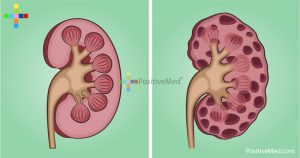Burning chest pain, that sour taste backing up in your mouth . . . acid reflux feels and tastes horrible, especially if you frequently experience it. If you’re looking for helpful knowledge and tips regarding managing acid reflux, don’t miss this essential guide:

What is acid reflux?
When you eat and drink, the food you consume travels down your esophagus and into your stomach. At the very opening of your stomach is a tight band of muscle shaped like a ring that relaxes and contracts to let food in – it’s called the lower esophageal sphincter (LES). Inside the stomach, the body produces natural gastric juices, 3 to 4 liters a day to be exact. Gastric juices are comprised of hydrochloric acid, digestive enzymes, and other components which help the body break down food, kill bacteria, and absorb critical nutrients into the bloodstream.
When muscles like the LES don’t open and close correctly, some of those gastric juices can make their way up into the esophagus leading to heartburn and inflammation symptoms referred to as acid reflux. If chronic acid reflux symptoms happen more than 2x a week, a doctor may diagnose you with gastroesophageal reflux disease, or acid reflux disease.
Occasionally, a portion of the muscle organ of the stomach and the LES will actually protrude through the hiatus (the opening in the diaphragm where the esophagus passes through the chest cavity). This is called a hiatal hernia and causes similar acid reflux symptoms.
What are symptoms of acid reflux?
Acid reflux may present in a variety of ways including a burning pain in your chest or throat (heartburn), sour or bitter acid back up in your throat or mouth, bloating, nausea, chronic hiccups, burping, bloody vomit or stool, feeling like food is stuck in your throat, and wheezing or prolonged sore throat.
What are risk factors for acid reflux?
Acid reflux can pop up for many reasons including your weight, body position, diet, and more. Risk factors include:
• Being obese or overweight
• Hiatal hernia
• Lying down right after eating (like snacking and going to bed)
• Smoking
• Consuming foods like chocolate, tomato, citrus, garlic, onions, spicy and fatty foods
• Taking certain medications like aspirin, ibuprofen, or blood pressure drugs
• Drinking carbonated beverages, coffee, tea, and alcohol
• Being pregnant
• Dry mouth
• Diabetes
• Asthmas
How can you manage acid reflux naturally?
While antacids like Tums and other pharmacological solutions (H-2 receptor blockers and proton pump inhibitors) can help manage acid reflux and gastroesophageal reflux disease, there are a handful of natural lifestyle modifications you can do that will keep symptoms at bay as well:
Adjust your bed – the flat position you assume when lying in bed can exacerbate acid reflux by making it easier for gastric juices to make their way up your esophagus. Bed risers for acid reflux raise your bed up to an angle which positions your head and chest slightly higher than your abdomen, 4 to 6 inches is recommended.
Eat smarter – consume smaller meals throughout the day instead of huge meals all in one sitting, and avoid trigger foods like chocolate, peppermint, fried and spicy foods. Also, avoid eating within 2 to 3 hours of lying down.
Lose weight – a reduction in weight loss may aid acid reflux symptoms. A study in the New England Journal of Medicine augments a growing body of evidence that shows increases in BMI contribute to acid reflux, and by losing even a little weight, you can prevent painful and uncomfortable symptoms.
Check your meds – it’s important to discuss ongoing experiences with heartburn and acid reflux with your doctor in case they may be caused by a medicine you are currently taking for something else.
Try supplements – some qualitative and anecdotal evidence has shown how herbal supplements can stave off acid reflux symptoms, including D-lemonene, ginger, probiotics, coconut oil, and apple cider vinegar.







